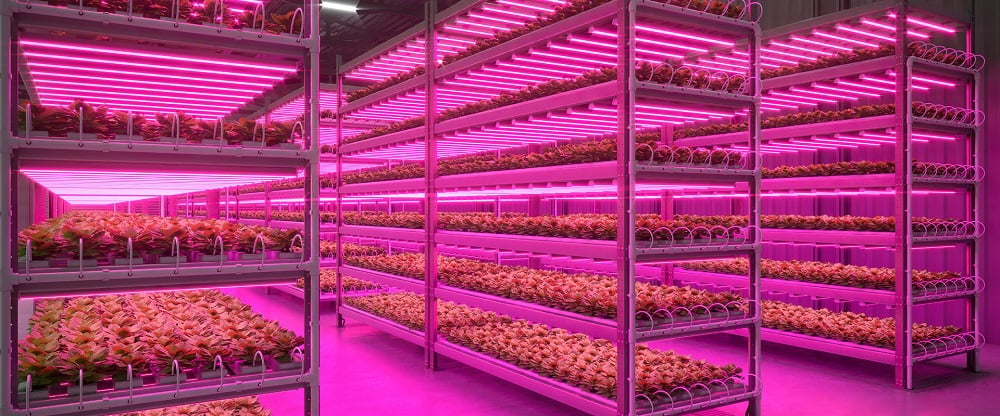The rise of eco-tech: how smart cities are planting the seeds for a greener future
Technology

Technology
As the world’s cities continue to grow, so do the challenges of public transport, urban infrastructure, energy consumption, and waste management. How are cities leveraging smart technology to optimise these processes? And how can ICT be used to create more sustainable metropolitan centres?
Smart technology is becoming an increasingly important aspect of city planning and urban development. Cities around the world are harnessing innovative technologies to improve liveability, connectivity, and sustainability. From San Francisco’s smart parking system to Helsinki’s geothermal smart heating system, there’s no shortage of inspiration when it comes to sustainable technology. In this blog, we'll explore five examples.
As the world’s smartest city, Copenhagen is leading the way in green technology. The capital, which aims to be the world's first carbon-neutral city by 2025, is utilising smart technology to achieve its goal. The city has an intelligent traffic management system, is connected by electric public transport, and enforces a mandatory ‘green roof’ policy. They even have sensors in their rubbish bins.
The city is well-known for its extensive network of bicycle lanes and parking facilities, and over 60% of residents commute on two wheels. On top of this, the city is investing in sustainable solutions like wind and solar energy, rainwater management systems, and energy-efficient infrastructure.

As part of Brisbane’s dedication to building a ‘Smart, Connected’ city, they’ve implemented several initiatives to improve liveability and sustainability. In 2020, the council installed 20 Smart Poles across the city. The devices use location-specific sensors to collect data on lighting, air quality, noise, and climate – information that will be used to drive future city planning and development.
The poles also host free public Wi-Fi, USB charging ports, and general power outlets. The city aims to achieve green transportation, clean air, waste reduction and carbon neutrality by 2031.

Stockholm is another example of a city that has used technology to drive sustainable urban development. Driven by a goal to become the world’s smartest city by 2040, the city has successfully launched several projects, including automatic rubbish bins, smart lighting, and even a mobile app residents can use to influence future city planning.
In 2016, the city deployed over 100 smart bins fitted with solar-powered software and sensors. The bins contain built-in technology that packs down waste, resulting in fewer rubbish collection runs, lower costs, and reduced emissions. Thanks to the success of Stockholm’s smart bins, the technology has been rolled out across the world – including right here in Australia.

Singapore has a well-earned reputation for being one of the most technologically advanced cities in the world. The city uses a sophisticated network of sensors and cameras to monitor traffic, manage congestion, and optimise the use of road space.
Despite being controversial, the network effectively reduces carbon emissions and encourages the use of sustainable transport options, contributing to the city-state's goal of achieving a clean, green, and sustainable future. Additionally, Singapore has several smart waste, water, and energy systems in place, demonstrating the cities ongoing commitment to sustainability and innovation.

Amsterdam is known for its innovative approach to sustainability – an approach they’re also using to tackle the growing challenge of food security. The Dutch capital was an early adopter of vertical farming – the practice of growing crops in vertically stacked layers, usually in the absence of soil and natural light.
Now, the city is aiming to optimise vertical farming using an innovative combination of robotics, sensory data, and artificial intelligence. As a result, vertical farms across the city are being used to grow food without the need for expansive agricultural spaces – an exciting step forward in the future of food production.

Smart cities around the world are turning to innovative technologies to create more liveable, connected, and eco-friendly communities. From Copenhagen's green roof policy to Amsterdam's use of vertical farming, smart cities are using technology to drive sustainability in exciting and unexpected ways.
By leveraging intelligent traffic management systems, sustainable energy solutions, and even mobile apps to involve citizens in the city planning process, these cities are creating a brighter, more sustainable future for all. With continued investment and experimentation, there's no telling what groundbreaking sustainability solutions smart cities will come up with next.
Brunel's technology experts can connect you with the skilled infrastructure, operational technology and connectivity specialists your business needs to thrive.